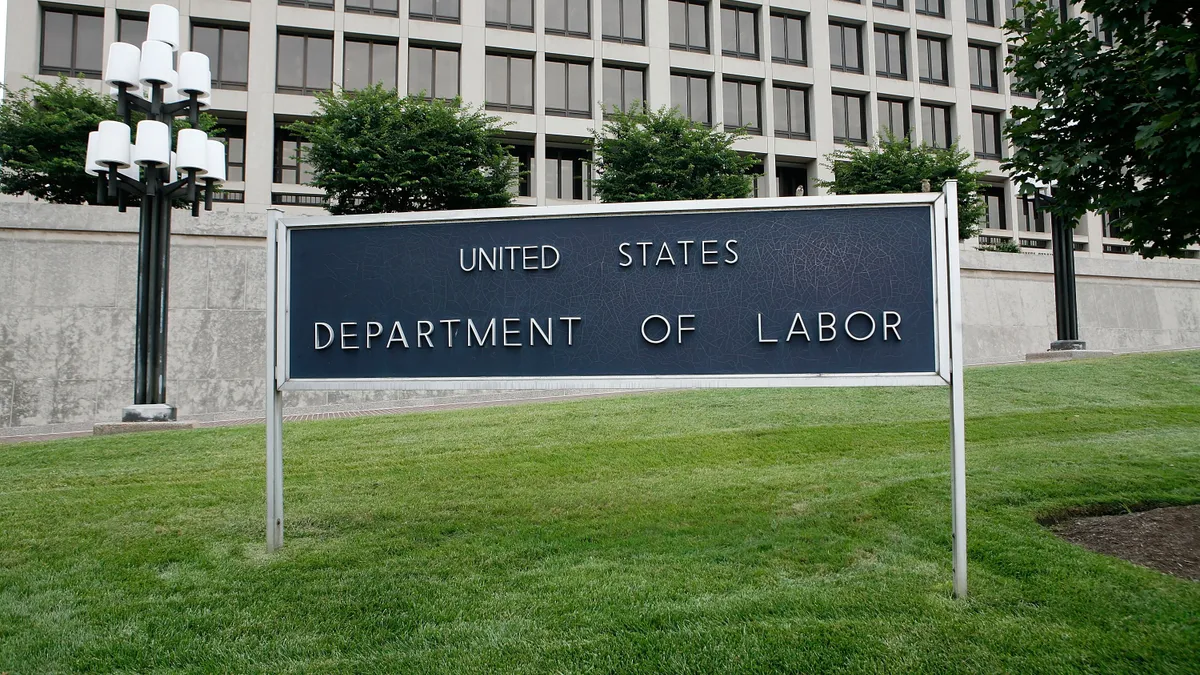Dive Brief:
- Members of the U.S. and Swiss governments signed a memorandum of understanding Nov. 18, seeking to expand apprenticeship programs among Swiss and Swiss-invested companies in the U.S, the U.S. Department of Labor announced.
- Swiss companies "directly support more than 500,000 U.S. jobs, with an average annual salary of $101,800," according to DOL. The memorandum of understanding especially intends to promote the exchange of ideas between the two countries regarding apprenticeships.
- "Registered apprenticeships are a proven learn-while-you-earn model and path to good paying, middle class jobs," U.S. Secretary of Labor Marty Walsh said in a statement. "Swiss-owned businesses have long demonstrated the value of this approach and with greater engagement with Switzerland and other partners we can increase foreign investment in the U.S. and expand opportunities for American workers."
Dive Insight:
Employers across the U.S., particularly those with international roots, have tapped hard into apprenticeships as a way to find workers in a tough market. One North Charleston outpost for German manufacturer Bosch has relied on apprenticeships since 1976 to find and train up employees, who often end up sticking around for long stints.
Apprenticeships — particularly the DOL-run Registered Apprenticeship Program — faced a number of potential shake ups and changes during the Trump administration years, the pandemic not least among them. Such programs, which heavily rely on in-person training, have struggled to adapt to online-only formats required by pandemic protections, experts previously told HR Dive.
DOL this month also moved to kill a Trump-era apprenticeship rule that allowed employers to create their own versions of RAPs, called Industry-Recognized Apprenticeship Programs, via Standards Recognition Entities. In other words, trade groups, corporations, nonprofits, educational institutions, unions and other groups could create and approve their own apprenticeship programs.
Supporters of the IRAP program said it could open up apprenticeship opportunities to more workers, but detractors were worried that the program would not have enough protections for apprentices. In its Nov. 15 proposal to rescind the regulation, DOL said RAPs were "a far more effective system than IRAPs."
Increasing DEI within apprenticeship has also been a focus for President Joe Biden's DOL. The agency recently sought to engage in official online dialogue with stakeholders regarding diversity in apprenticeships, an effort that ended Nov. 29. And in February, the president asked DOL to reinstate the National Advisory Committee on Apprenticeships in order to improve access to the programs for "Black and brown Americans, immigrants, and women."













